The UK’s hottest early-stage AI startups
A guest post by PreSeed Now's Martin SFP Bryant
Hello Everyone,
This is a guest post about early stage A.I. startups from the U.K. I have a lot of readers in the United Kingdom, and especially based in London so I thought this might be apt.
I’m a huge follower of the latest A.I. startups and cover a few on my “Prospectus” section of A.I. Supremacy. However during the Generative A.I. hype cycle, there are a ton of new startups coming out of stealth in their pre-seed phase of fundraising that deserve watching.
There’s actually an incredible journalist Martin in the UK covering them that I have wanted to showcase for a long time. If you live in the UK, enjoy startups or are in the Venture Capital space, you really should follow his Newsletter.
The intersection of emerging A.I. startups coming out of stealth with venture capital and the new Generative A.I. intersection with everything is one of the most interesting topics in all of A.I.
Martin is uncovering the best early-stage B2B and deep tech startups and his niche is insanely good. Those origin stories are really good, and he digs into the product, market, and founder story of startups so you can understand how they fit into what’s happening in the wider world and startup ecosystem.
My only wish is that every 🌍country had such a Newsletter so we could hear more of the early startup stories.
Please note each startup has a “read more” option for you to dig deeper.
Want to Sponsor this Newsletter? Go here.
💓Featured Sponsor of this Newsletter today 🚀
Your Very Own AI Writing Assistant
Running out of ideas on how to respond to an email? Worried you’re making silly grammatical errors? We’ve got you covered. PixieBrix Writing Assist, an AI Writing Assistant powered by ChatGPT, you can shorten text, write for your target audience, check for typos, and more. You can customize it to your heart’s desire.
The best part? It works where you work. One click and the sidebar starts providing assistance.
The second best part? It’s FREE.
I talk to lots of very early-stage tech startups from across the UK in my role running twice-weekly newsletter PreSeed Now. Unsurprisingly, an increasing number of the pitches I receive are related to AI.
I’m always skeptical about startups that look at different markets and simply apply the latest trendy tech to them. ‘Generative AI for X’ is the new ‘blockchain for X’, which was the new ‘Uber for X’, thankfully they’re far from all like that.
And with the UK having been home to one of the most important AI companies of the modern age, Alphabet’s DeepMind, it’s worth keeping up with what else is happening here.
Here are a few of the startups that have caught my eye lately that are working on AI products and technologies.
Aligned AI
For all the talk about AI safety and regulation, there’s huge pressure for companies like OpenAI to keep pushing forward and maintain their lead without worrying too much about potential negative impacts.
But what if the development of technologies like large language models was aligned with that need for safety from a foundational level? That’s what the likes of Inflection have been working on, but a UK team thinks they’ve created something better.
Aligned AI is building tech based around the concept of ‘concept extrapolation’, which is designed to do a better job of figuring out what a human wants from the AI.
Co-founder Rebecca Gorman explained the idea to me, drawing on Asimov’s first Law of Robotics to paint a clearer picture:
“If you want to tell a robot not to harm a human being, you have to find a way to be able to communicate to it what a human is and what harm is, in pretty much the same way that a human understands those concepts.
“With traditional machine learning, we're nowhere near communicating that. With the concept extrapolation that we've been developing at Aligned AI, we're getting closer, and we'll continue to get closer with our research.”
Aligned AI is currently working towards what it describes as a safer alternative to the likes of GPT-4.
Mignon
Alongside the rapid growth in AI software comes a growing demand for AI-friendly computing hardware. That’s great news for Nvidia’s stock price, but startups around the world are developing their own solutions, and there are some interesting examples in the UK.
Newcastle University spinout Mignon has developed an artificial intelligence chipset that, according to CEO Xavier Parkhouse-Parker, has “in the order of 10,000x performance improvements against alternative neural-network based chips for classification tasks.”
And Mignon’s chipset can also train AI models on the edge, meaning the models can be optimized for the specific, individual environments in which they’re used.
While some innovative AI chip designs require ‘exotic’ production techniques, Mignon’s design can be produced via a standard CMOS fabrication approach.
Mignon’s technology comes from the work of Professor Alex Yakovlev and Dr Rishad Shafik at Newcastle University.
Their research into taking the Tsetlin machine and putting it into computational hardware caught the attention of deep tech venture builder Cambridge Future Tech, which has been working with the startup to commercialise the tech.
Rigpa
Edinburgh’s Rigpa is another UK startup that has developed an AI-focused chip, and it’s taken its inspiration from the human brain.
The basis of the tech is founder Mike Huang’s research into neuromorphic computing; designing chips that are based on the way the human brain processes information.
““It’s a coincidence that GPUs are good for A.I. because they’re good at parallel computing, but they're not efficient,” Huang told me.
“The brain itself is so powerful but consumes very little power… 20 watts, like a lightbulb… By mimicking the biology of the brain we believe we can create AI that has lower power consumption and faster inference speed.”
While the likes of Google and Intel have researched neuromorphic computing for years, and Australia’s BrainChip has been around since 2004, the market for this type of AI just isn’t quite there yet.
This provides an opportunity for the likes of Rigpa to develop new technology that either ends up being sought after by tech giants, or serves specific niche markets well. And of course, there’s always room for new giants to emerge as rivals to the likes of Google and Microsoft, with the right technology and the drive to market it well.
AMPLY Discovery
Using AI to discover potential new drugs is nothing new, but Belfast’s AMPLY Discovery has an unusual approach. It looks at the world of nature to find compounds that already exist and could be made useful to humans.
“Small organisms fight one another. Bacteria fight other bacteria for supremacy, larger organisms have to try to fight off smaller organisms. So what we're doing is we're finding those compounds that these creatures are already producing, shaped by years of evolution and appropriating them for human beings,” CEO Ben Thomas explained to me.
AMPLY Discovery makes use of genetic sequencing data or protein and peptide analysis, either from publicly available sources or their own research. Their software then scans it, using AI techniques to identify potentially useful compounds.
Once they’ve found a likely candidate compound within the digital data, they can use 3D bioprinting to create a physical version of it to test in their lab.
Enzai
The opportunities for startups in AI go beyond tech itself. Enzai is a Belfast-based company that has developed software to support companies in ensuring the governance around their AI is watertight.
As their website explains, they help “organizations adopt best-in-class AI governance policies and measure compliance against them.”
As AI laws emerge around the world in the coming years, this compliance will be increasingly complex for companies to achieve, so easy, accessible support will help the AI world thrive instead of drowning in admin and conflicting legal demands from different jurisdictions.
Enzai combines automated data collection with information entered by humans to create standardised reports for different audiences. This could include regulators, but could also help A.I. development teams share details of what they’re building with less technical members of staff.
Self
Remember when chatbots were being hyped up around 2016? There were startups at the time that explored the idea of a chat-based personal assistant. But AI tech simply wasn’t up to the task and humans ended up having to do most of the work behind the scenes.
Self is a London-based startup that believes this idea’s time is here at last.
Self is, as founder and CEO Jonathan MacDonald puts it, “a hyper personal, A.I.-powered assistant that learns your personal preferences, simplifies your life, and gives you back time for things that matter.”
The idea is for Self to become as useful as a good human personal assistant, knowing instinctively which restaurant to book for you, which seats you’ll need on a flight, or how your present schedule impacts on your ability to fit in other activities.
At present, the product relies on human support to make sure it’s doing what users want, but MacDonald believes that unlike in the last decade, this time the technology really is there to support a fully automated assistant that delivers on the failed promise of Siri.
Cam AI
Another startup exploring opportunities in conversational AI is Cambridge’s Cam AI. Developed by a team with a background in psychology rather than tech, this tech is designed to intervene at young people’s darkest moments, potentially saving lives.
At present, if you use a social media or messaging app and start talking about self-harm or suicide, automated messages will often direct you to appropriate third-party help. Even mental health and wellbeing apps don’t want to address anything that serious. But ‘call a charity’ isn’t that useful if you’re feeling bleak at 2am in the next room to your parents.
But Cam AI’s tech is being trained on real therapy sessions from co-founder Robert Batt’s mental health clinics, which specialize in the needs of young people.
CamAI’s plan is to initially offer its chatbot for free with the aim of saving as many lives as possible. With a team of 11, they are working towards this with the development of their MVP.
While their ultimate business model isn’t nailed down yet, they’re currently focused on social impact. In time though, it’s easy to imagine this technology being offered as an API for social media companies.
“In 10 years’ time, five years' time maybe, I’d like to see that for any toxic content that is being delivered to young people online, there is an offering of this as a support. So in other words, they leave that platform and they come through to our chatbot, and our chatbots start talking to them free of charge anywhere in the world, 24 hours a day,” Batt told me.
Cubode
As you’d expect, the UK is also home to plenty of startups that don’t have AI at their core but are using it to enhance their products. An interesting example of this is Liverpool-based Cubode, which helps data analysts create advanced analytics quickly, while teaching them how to code.
The product is aimed at analysts who use data on a daily basis but lack the coding skills to create advanced analytics like interactive visualizations or machine learning models.
A graphical interface allows users to create these advanced analytics, generating Python code in the background. Large language model tech is then employed to create easy-to-understand explanations of what they’ve built, and how the code works.
The startup also wants to feed back into LLMs. It’s working on an API that will allow LLMs to draw on Cubode as a source of information, helping them generate accurate code examples, something they don’t always do from large, unfocused training sets.
In conclusion
The startups I’ve listed here are just a taste of what’s going on around AI in the UK. But even so, they serve as a reminder that not all of the talent working on the building blocks of what comes next is based on the US West Coast.
They also show that compelling ideas for using those building blocks can come from anywhere. Even within the UK, these companies aren’t all based in London, or even in the famed university cities of Oxford and Cambridge; I encounter interesting AI startups based in locations across the country.
When seeking interesting AI startups, it’s always worth looking beyond the obvious hubs, as you never know what gems you might find.
About PreSeed Now
PreSeed Now was founded in May 2022 by Martin SFP Bryant, a journalist and editor who has been involved in the the early-stage startup space since 2009.
In 2023, Martin was joined by Samantha Deakin, as their head of growth.
I have a lot of respect for emerging Newsletters covering Venture Capital trends and startups in the space.
Those that cover more the B2B side are even more rare! Read their about page to consider subscribing to them.
Martin is also the founder of Big Revolution, a five year old business and marketing consultancy focused on the power of language to help startups and growth-stage tech and media firms grow.
Thanks for reading!









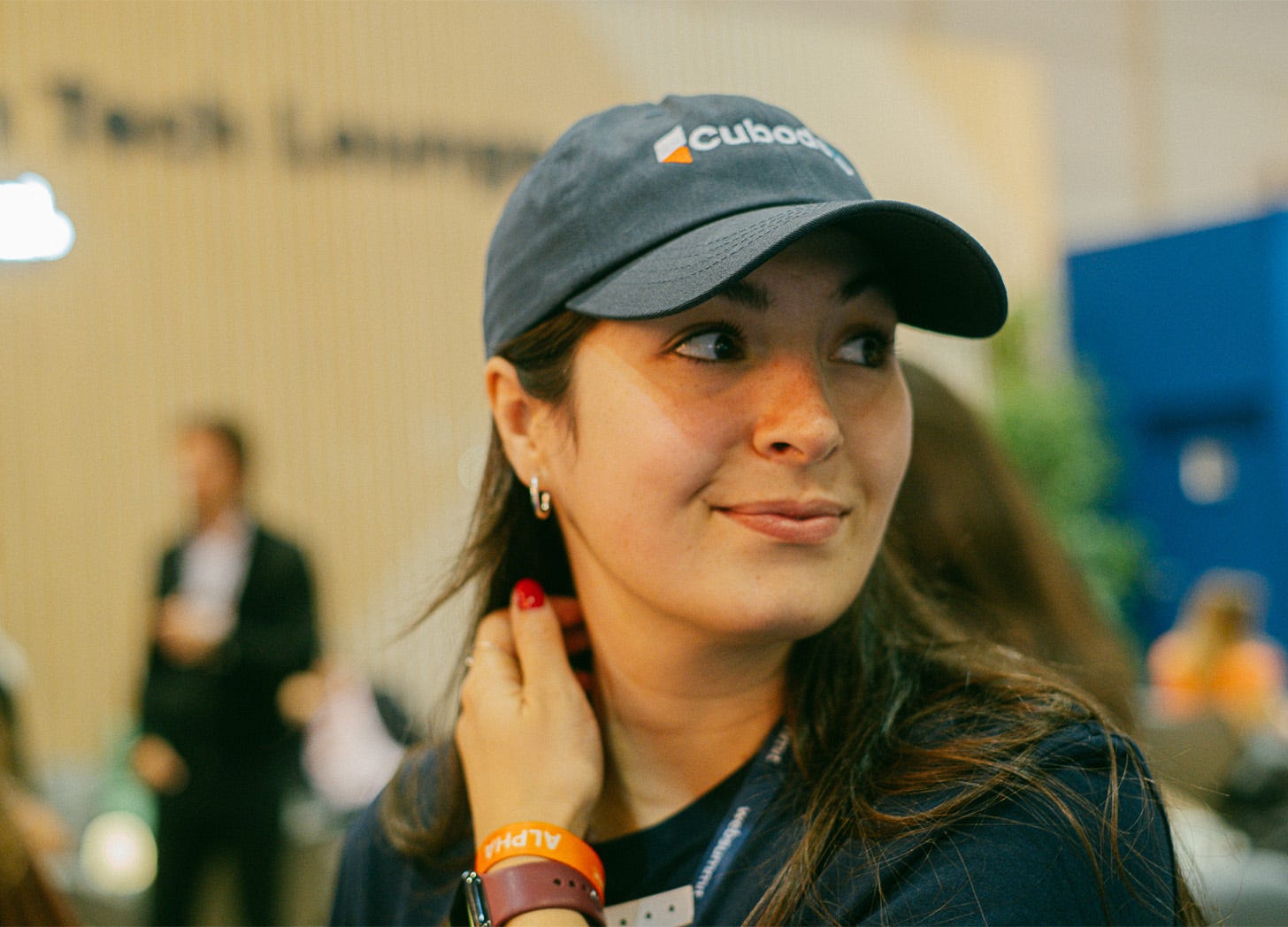
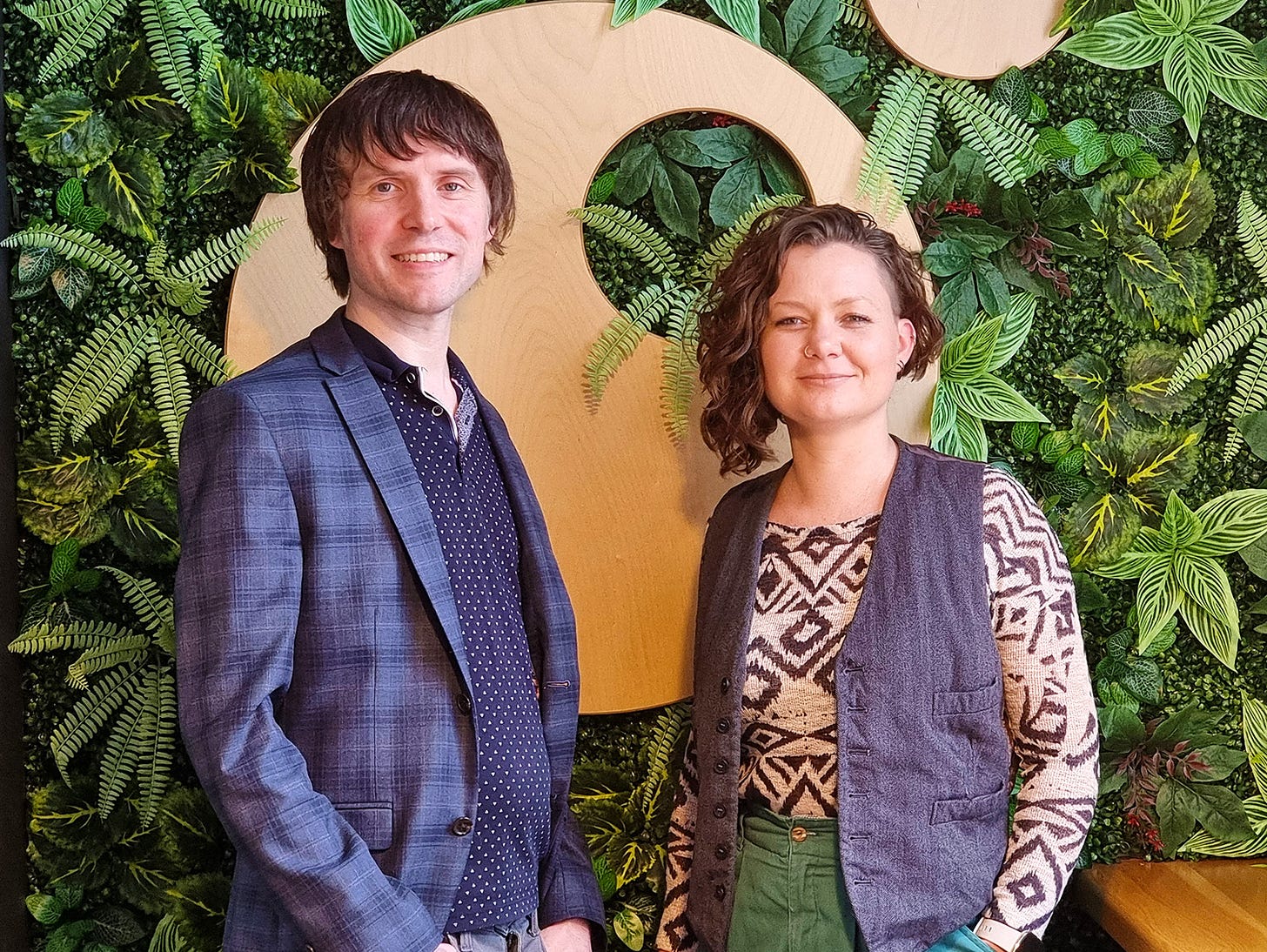

Informative post, thanks Martin 👍
I find these emerging UK startups fascinating.